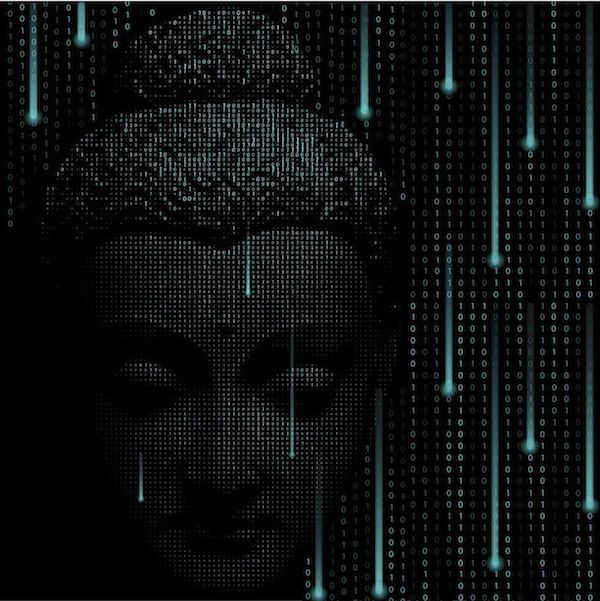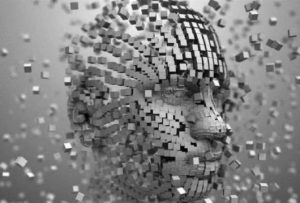
I have spoken a little about generational dissonance in a previous article on parenting,* but this little muse is on the impact that the internet and augmented reality—or virtual reality—is having on generation gaps, and, moreover, my curiosity over why we are so inclined to want to escape this reality. Although, as my son reminded me, “It’s probably from the ’terrifying’ thought that if there is nothing beyond this reality, if this reality is it, it would be incredibly depressing.”
Buddhism and today’s youth has been a serious topic of conversation over the last few years. This is a much longer conversation than the few thoughts I’ll share here, but as a Buddhist I believe it’s worth thinking about when it comes to engaging with younger generations.
Every generation is doing it for the first time of course—whatever “it” may be. We’ve all been there. And we need the energy and fresh mind of youth to help push us forward as a species. What differentiates this new generation from those that came before is how generational dissonance seems to be exacerbated by tech. And by tech, I mean their disappearance into another reality, which some of our young ones tell us is where “it” is at.
A new generation is parked on its bottom for hours, days, weeks, months at a time. They convey a sense of entitled self-righteousness from behind a headset and controllers, heck even Kinect sensory systems, all the while not actually doing very much at all. Those who escape one reality for another weren’t around in the 1990s when these things were gaining traction. Back then, hours in front of a keyboard or gaming platform may have been spent at the expense of family board game time, but we still played outside, with direct human contact and space to have our own thoughts.
Most significantly, I think, for better or worse, we didn’t have 24/7 access to the world’s opinions. But at the same time, the information shared is all too often shared from equally ignorant sources. It’s like teenage boys asking other teenage boys how girls think. It’s not a sensible route to insight. My concern is that there has been an increase in generational dissonance thanks to our youth remaining in virtual bubbles, which in turn leads to a lack of learned wisdom being passed on.

Full immersion is a different creature from 2D platform games. The subconscious brain doesn’t know the difference between virtual reality (VR) and the reality with which we engage in the organic world. Our brains respond even when we imagine a phantom limb as if it was still there. Athletes, racing drivers, actors, and so on, will mentally visualize all the moves of their performance until their body knows exactly what it’s going to do in reality—because the biological system believes it has already done so. This is something that I have written about before as it’s deeply fascinating to me, particularly as a visual artist, how we use what we see and how our brains respond in ways advantageous to us.
VR headsets are used for training—even the military uses virtual reality as a cost-effective and safer option to military exercises. And if our brains believe our imaginations, then indeed the conversation regarding virtual reality takes on an entirely new direction. Even more so when sensory suits are worn during virtual experiences. Therefore, it seems to me that we should be very mindful of how we use this technology.
Even more concerning, I think, is the idea that tech whizzes are working on technologies that will allow AI versions of ourselves to live on for ever.** However, our body really does know the difference. And by that I mean that when we engage in and with nature and other biological life, there are energetic feedback loops that do not exist in a virtual world. We resonate with the electric fields of other biological forms. Even something as fundamental as the soil has an extraordinary impact on us: “Soil microbes help regulate our emotions and immune response,” says Donata Vercelli, professor of cellular and molecular medicine at the University of Arizona.*** Ergo, those who have never allowed their hands to be close to the dirt actively do themselves a disservice. Could virtual reality then be like drinking salt water? As our brain convinces the body of its reality, but with no natural feedback, arguably the body actively suffers, which in turn depresses the brain. At what point may we be akin to the plugged-in humans of The Matrix?
However, world-building in cyberspace is undoubtedly a similar phenomenon to playing with dollhouses or creating dioramas. Our urge to control some aspect of reality is strong from early childhood, so arguably this is not really such a great leap from one generation to another. But now we can interact with people who are jacked into the same virtual world from all over the planet. In an ideal world, this might lead to greater interconnectedness. But it does become curious when adopted personas feel more authentic to the player than their birthed form. People without legs can run. And we can also fly, do magic, be magical, be fantastical, and feel more like an elf in a faraway forest than the person we see in the mirror.
It’s the alter ego we adopted when we were children in our fantasy dress-up games, but on steroids. We can also cause virtual harm without recourse, which, given the brain’s relationship with not knowing what’s “real” and what’s not, brings about another conversation: can we find a path to use this technology in truly positive ways?

All this said, humans have felt the appeal of altered reality for thousands of years. Maybe we always have. Perhaps it is part and parcel of who we are. But why? The ancient Egyptians liked their wine and lotus, and yearned for immortality, which easily dates this desire to more than 6,000 years ago. Psychedelic compounds have been consumed for even longer, and the shamans of old seemed to record their out-of-body experiences on cave walls. So is this a pretty big clue to our inner knowing that we are more than this body? Buddhism reminds us of the illusion of this reality.
The Avatamsaka and Prajnaparamita sutras each tell us of realities and illusions. But well before Buddhism, we have creational stories with common threads that suggest something far different from the academic timeline of humanity. Something that is being consistently re-evaluated as humanity is dated further back in history thanks to advances in archeology.
So do we have a desire to escape, even if it’s only into the realm of cinema, because our brains are creative and thirsty for experience? Or is it something more? In my opinion, a polarized reaction to the global mess we see growing around us is to resume a natural reality far from the tech-dominated world—even if it is as a contingency running alongside the gains of the modern world. I use technology daily, for it is a Goliath to try and escape from and there are many perks, but small steps to autonomy seem to be the key.
This world is a step away from another reset, should a cosmic happening render all our electronic systems kaput. My son, a professional programmer, balks at this thought of course, but finding a corner to create a real-life alternate reality, to me at least, seems the route to take. Don’t bother protesting. It does nothing aside from annoying all the wrong people. Instead, create your own self-sustaining paradise. Plant seeds, get bees! (if you can). Become the superhuman in this reality.
This is a much more complicated conversation than I have space for, and one I have only skimmed the surface of with these few thoughts. What are your thoughts?
* Nature, Nurture, and the Perils of Parenting (BDG)
** Somnium Space, a Metaverse company, is offering an “immortality mode” that, once it has collected (for a sum) all your personal data and character traits, will run an AI avatar of you even after you have passed away.
*** Uncovering how microbes in the soil influence our health and our food (The Washington Post)
See more
Tilly Campbell-Allen (Dakini as Art)
Related features from BDG
Exhaustion and Overwhelm
What You Think, You Become …
I Spy with My Magic Eye …












